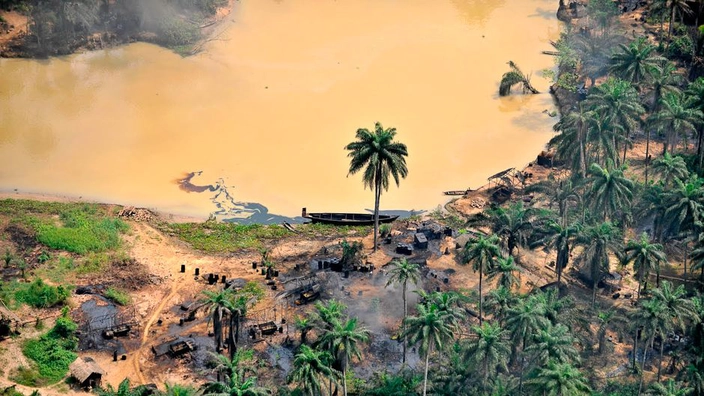The Niger Delta, a web of rivers and marshlands in southern Nigeria, is a land of abundant natural wealth. Yet, this very wealth has become a curse for its people. For decades, the relentless extraction of oil has inflicted a devastating toll on the environment and the health of the communities who call this place home.
A History of Exploitation
The roots of the Niger Delta’s plight run deep. Colonial powers first exploited the region’s natural resources in the 19th century, with little regard for the social or environmental impact. This exploitation continued after Nigeria’s independence in 1960, with foreign oil companies taking center stage.

The Bomu Manifold, a Shell facility near K. Dere, has been the site of multiple oil spills and a devastating fire in 2009.
Oil exploration intensified, and the Niger Delta became the heart of Nigeria’s oil industry. However, the economic benefits of this oil boom largely bypassed the Niger Delta itself. The oil wealth flowed outwards, enriching multinationals, while the Delta itself remained steeped in poverty.
Environmental Devastation

Crude oil pollution blankets the shoreline of a river in Ogoni, Rivers State, Nigeria
The environmental cost of this oil wealth has been immense. Oil spills, a frequent occurrence, have ravaged the delicate ecosystem of the Niger Delta. Spilled oil contaminates water sources, destroys fertile land, and suffocates marine life. Gas flaring, the burning of excess natural gas during oil extraction, pollutes the air with harmful emissions, contributing to respiratory illnesses and acid rain.




